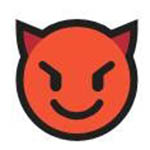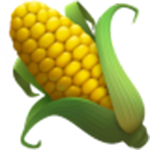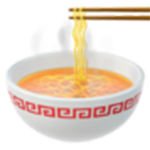Knowing your emojis can keep your kids safe. The Australian Federal Police and the Australian Centre to Counter Child Exploitation (ACCCE) recently shared a list of the double meanings of emojis and acronyms. And we’re not just talking about the eggplant and peach.
Parents, if you have kids of texting age, please familarise yourself with these double-meaning emojis to help identify if your children are being targeted by online predators.
It’s worrying to think that our kids are receiving texts like this, especially from a predator online, but it’s even scarier to think that we might have no idea this was happening right under our noses. This is why we need to be aware of the secret codes of our tweens and teens and why the ACCCE released this list of emojis that they have seen connected to dangerous online activity including online grooming.
“Emojis and acronyms are commonly used in online communication and are usually harmless fun, but some have double meanings that are well known and some that are not,” AFP Commander Human Exploitation Helen Schneider said.
“Our recent experience has shown that in some situations emojis like the angry face emoji could be a sign that your child is the victim of online grooming.
“It is important to stress that in most cases it is probably nothing to worry about but having a healthy relationship with your children about their safety online can help you decide if there’s an issue.
“Electronic communication is constantly changing and it can be difficult for parents and carers to keep up. That’s why having a healthy dialogue with your children is the best defence you can have.”
Recent examples of emoji use
| Emoji/slang | Context |
|---|---|
 | Most commonly seen by ACCCE in chats between offenders and victims of financial sextortion. Usually used multiple times within chats. Example: “I am sending your images now and they will go viral” |
 | Seen by ACCCE in reports of online grooming. Example: “You will like this” |
 | Seen by the ACCCE in a range of reports, usually used in the intended context. |
 | Seen by ACCCE in reports of online grooming. Example: “Want to know what I’m doing?” |
Glossary of emojis, emoticons and acronyms
| Catch a case | Willingness to be arrested and charged for something, often used in relation to sexual desire for someone who is much younger/underage |
|---|---|
| CD9 or Code 9 | Parents are around |
| DNI | Do not interact, especially as a warning of explicit/sexual content for under 18s |
| DM;HS | Doesn’t matter; had sex |
| DPW | D*** pictures welcome |
| Down in the DM | Using private messages (DM=Direct Message) on social media to ask for nude photos and/or to filter through people to find a sexual encounter |
| GNRN | Get Naked Right Now |
| GNOC | Get Naked On Camera |
| LMIRL | Let’s meet in real life |
| LMP | Like my pic |
| NIFOC | Naked in front of computer |
| NP4NP | Naked Pic For Naked Pic |
| P911 | Parent Alert |
| PIR | Parent in room |
| POS | Parent Over Shoulder |
| POV | Point of view, and often indicates that a video is supposed to be filmed as if you’re seeing through someone else’s eyes |
| Rule 34 | Any topic can be made into pornographic content |
| Snacc/Snack | A person you find attractive |
| Sneaky Link | Seeing someone for sex but you want to keep the relationship quiet |
| Smash | To have casual sex |
| TDTM | Talk dirty to me |
| 1174 | Nude club |
| 143 | I love you |
| 9 | Parent watching |
Emojis and their potential meanings
 | Porn (rhymes with corn), can be used to get around word restrictions on social media |
 | Bottom |
 | Feeling frisky or naughty |
 | Desiring someone sexually (often used in response to nudes) |
 | Nudes, which are often called “noods” |
 | Used when sending or receiving nudes |
 | Sexual activity |
 | Spiciness eg. inappropriate or risqué content |
 | Cuddles |
 | Drunkenness, sexual arousal, or a grimace |
Note: This guide is meant to provide a broad overview because slang, acronyms, emojis and emoticons can have multiple meanings and be used in many different ways.
Top tips for parents and carers
The ACCCE has also shared their top tips for keeping your kids safe online:
- Keep your child’s personal information including full name and age private
- Ensure the background of photos or videos doesn’t give away your address or location, (and don’t post your location or ‘check in’)
- Avoid posting photos in school uniform
- Only share images of your children with people you know and trust
- For community accounts, consider having a closed group with approved members and ensure you have strong privacy settings in place
An important resource is the ThinkUKNow website, an AFP-led resource that helps parents, carers, educators and children develop good online habits that protect children and deter offenders.
“And remember if you suspect a child has been the victim of online exploitation please don’t hesitate to report it to the ACCCE. If you know abuse is happening right now or a child is at risk, call police immediately on 000,” Schneider said.
For more information on the role of the ACCCE, what is online child sexual exploitation and how to report it, visit the ACCCE.
What to read next



